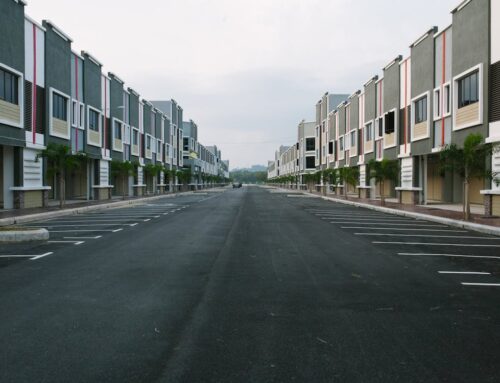The real estate market has not experienced many challenges in the last decade. In fact, if you look at what the markets have done around the country over the last 10 years, it’s nothing short of amazing. Not only have prices tripled or more in most areas, but the cost of living for these properties has remained affordable, especially when it comes to borrowing money and covering a monthly mortgage. Yes, the average income can cover a mortgage, even with the inflated prices we are seeing today. However, it is the additional costs of living that may keep buyers from being able to purchase a house that is out of their price range. Because of that, and low inventory, the market has slowed down significantly from where it was even a year ago.
Interest rates have had an impact on the buyers market. However, they alone are not the reason people are not buying houses right now. The added cost of insurance and taxes for each property, along with utilities and everything else have made these properties less affordable for most buyers and they are currently waiting for prices to go down in 2024. While that may happen, it is not expected to be significant. Most experienced realtors agree that any dip in the market will be between 10-20% of the current values meaning properties will still be more valuable than they were five years ago. That dip is expected to be short-lived as a small drop in prices will reinvigorate the buyers market and get them back in the game, regardless of interest rates or other challenges.
Interest Rates
Why did interest rates go up? The reasons are actually not political and are in fact good if you follow the economy. With home prices skyrocketing, inflation began to shoot up. This created a major problem with the cost of goods and services that needed to be slowed down. The increase in interest rates has not been successful until most recently, as home prices as well as the cost of goods and services continued to go up. Finally, we are seeing an impact from the higher rates as buying demand has gone down, not only with new homebuyers, but investors as well. Part of the challenge that buyers are also seeing, besides higher costs for everything, is that the inventory remains too low meaning they cannot buy in areas they want to.
Interest rates are expected to remain higher in 2024. However, many believe that they will be lowered, perhaps not significantly, but enough to get buyers back in the game. Investors will especially be the first to take advantage of lower rates. New homebuyers will have to be sure that they are able to get a property by having a solid down payment, plenty of income to cover the monthly mortgage costs and a strong credit score. The combination of all of these will give homebuyers key advantages as they try to get their ideal property without having to overpay.
Job Market
The job market has been strong for years and many are impressed at how well it remains, despite struggles in other areas of the economy. However, while there are plenty of jobs available, there are signs that the labor market is slowing down. Companies are cutting labor costs and are no longer taking on new employees at this time. Because of this, many are waiting until next year to determine whether or not they should be aggressive in the real estate market. For them, it is not necessarily the cost of these homes but concern over their income that will be the biggest deciding factor in whether or not to buy and where.
Where to buy is also an interesting factor that is impacting the market. It is easier than ever to find a new job and home in a different city without having to visit that city. The reason is because while the job market is cooling off, there are still plenty of jobs for those who have skills and experience in specific fields. If you have the ability to relocate, make more money and buy a beautiful new home, are you not going to take a serious look at it? Millions of Americans have that option and will be taking it into consideration in 2024, especially if local job markets cool down while their real estate markets remain too expensive.
Investors
It is believed that for every 100 homebuyers that are out there, more than 50 of them will now be treating the property as an investment opportunity, more than as their primary home. This does not mean that it will not be the primary home of these buyers, but it does mean that they are not looking at it as their one and only property purchase for the next several years. Buyers are less concerned about property values because they know that they have options to make money off the property once they purchase it. Their concern now has more to do with making sure that they can get the property at a good monthly deal.
If you buy a home for $500,000 and you have a monthly mortgage of $2,500 you have a good deal on the property but still have a lot to cover. However, you can turn your guest room into a money maker with options like AirBnb and get income from your property. Depending on where you live, homeowners are generating anywhere from $500 to $5,000 a month by renting out either a room or their entire primary residence. This means that potential buyers are more focused on getting the right property than they are about the finances, because they can generate income directly from the property.
Inventory
A major challenge for homebuyers in 2024 is still going to be inventory. With a job market that may be slowing down and questions about the strength of the economy, many of the current homeowners may decide to sit tight. Considering that the majority of mortgages still have low rates, there is no reason for homeowners to sell other than cashing out on their property. If that is not enough motivation, especially with lower monthly cost of living expenses, then inventory will remain low.
Low inventory will keep home prices high. However, there is the possibility that a short dip in prices like the projected 10-20% could lead to a surge in inventory as homeowners will be focused on grabbing as much value for their property. No one can be sure what will happen in 2024, but the real estate market will be heavily watched compared to other years.
Needed Renovations
If properties need major renovations, the cost will play a significant role in whether or not a homebuyer can afford the property and project. If someone wants to buy a $400,000 house and has $100,000 to put down on it, they will not have enough to cover renovations if they exceed $50,000. Because many of the homes that could be listed in 2024 will be 40 years old or older, major renovations will be needed and that could impact the market for sellers.






[…] clindamicina antibiotic[…]
clindamicina antibiotic